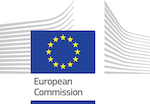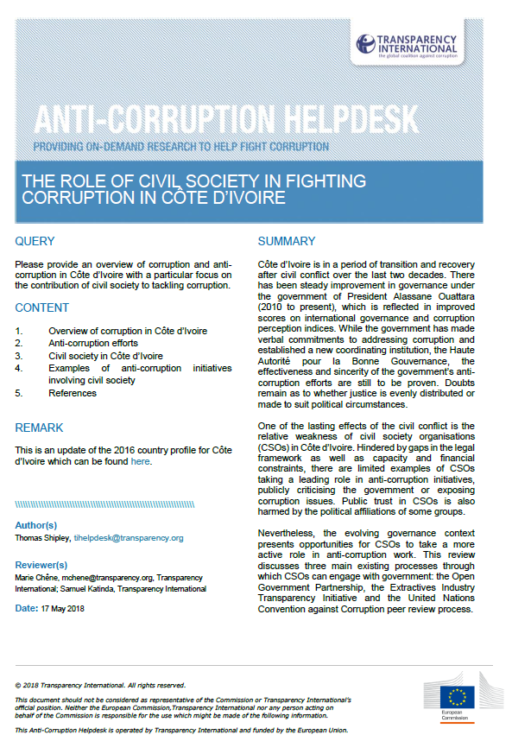
This Anti-Corruption Helpdesk brief was produced in response to a query from the European Commission. The Anti-Corruption Helpdesk is operated by Transparency International and funded by the European Union.
Query
Please provide an overview of corruption and anti-corruption in Côte d’Ivoire with a particular focus on the contribution of civil society to tackling corruption.
Content
- Overview of corruption in Côte d’Ivoire
- Anti-corruption efforts
- Civil society in Côte d’Ivoire
- Examples of anti-corruption initiatives involving civil society
- References
Caveat
This is an update of the 2016 country profile for Côte d’Ivoire which can be found here.
Summary
Côte d’Ivoire is in a period of transition and recovery after civil conflict over the last two decades. There has been steady improvement in governance under the government of President Alassane Ouattara (2010 to present), which is reflected in improved scores on international governance and corruption perception indices. While the government has made verbal commitments to addressing corruption and established a new coordinating institution, the Haute Autorité pour la Bonne Gouvernance, the effectiveness and sincerity of the government’s anti-corruption efforts are still to be proven. Doubts remain as to whether justice is evenly distributed or made to suit political circumstances.
One of the lasting effects of the civil conflict is the relative weakness of civil society organisations (CSOs) in Côte d’Ivoire. Hindered by gaps in the legal framework as well as capacity and financial constraints, there are limited examples of CSOs taking a leading role in anti-corruption initiatives, publicly criticising the government or exposing corruption issues. Public trust in CSOs is also harmed by the political affiliations of some groups.
Nevertheless, the evolving governance context presents opportunities for CSOs to take a more active role in anti-corruption work. This review discusses three main existing processes through which CSOs can engage with government: the Open Government Partnership, the Extractives Industry Transparency Initiative and the United Nations Convention against Corruption peer review process.
Authors
Thomas Shipley, [email protected]
Reviewers:
Marie Chêne, Transparency International; Samuel Kaninda, Transparency International
Date
23/05/2018
Tags
 Download PDF
Download PDF
